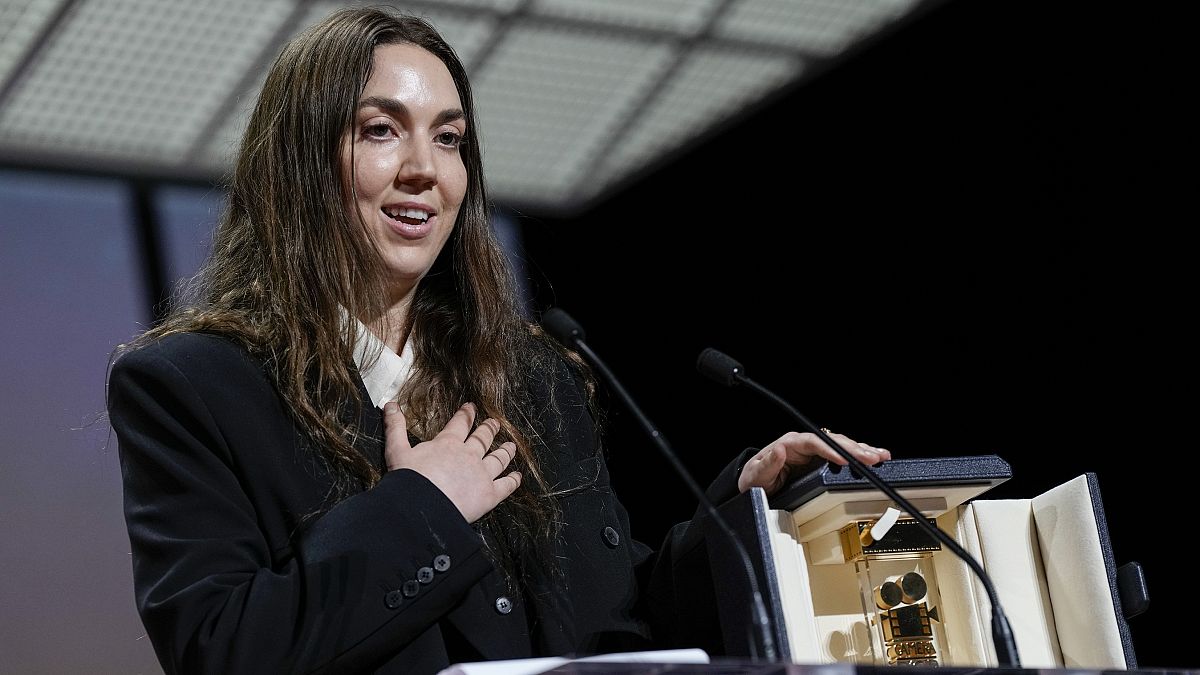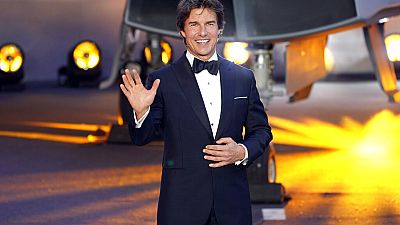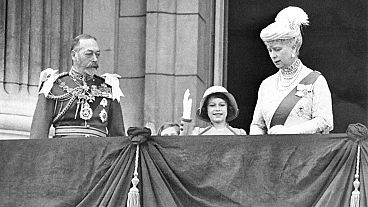In the main competition at Cannes, less than a quarter of the directors were women.
On the last day of the Cannes Film Festival, American director Kelly Reichardt was asked a question by a (male) reporter in the press conference for Showing Up, her film starring Michelle Williams, set around artists exhibiting their work. What has changed for female directors, the reporter asked?
“Well not that much has changed, or you wouldn’t ask me the question and put my award in the context of being a woman, I would just be able to be a filmmaker,” she responded.
There’s no doubt the quantity of women directing movies in the Cannes Film Festival’s main Competition section was still an issue. This year, it reached a festival high of 5 out of 21 films, including Reichardt and French veteran Claire Denis, who shared the jury’s runner-up Grand Prix prize for her film Stars at Noon. Women still made up less than a quarter of the Competition.
There may not have been a female Palme D’Or winner as Julia Ducornau was for Titane in 2021, but there was a Camera D’Or prize for first-time filmmakers that went to the movie War Pony – and that might be the most hopeful sign from the festival for aspiring female directors.
War Pony is by co-directors Australian-filmmaker Gina Gammell and actress Riley Keough (who happens to be the granddaughter of Elvis Presley) and was filmed with first-time actors on a Native American Reservation in South Dakota. It’s the interlocking stories of a young boy and a young man finding their way to manhood.
“I always wanted to direct and write,” Keough says of her path to the prize. “As a young child, and teenager, I would make movies and edit them, have my friends act, and I was writing all the time. But acting was the first thing that took off for me when I was a teenager.”
Keough and Gammell met the eventual writers of the film, Bill Reddy and Franklin Sioux Bob, while Keough was shooting Andrea Arnold’s American Honey in 2016. They eventually went to stay with them on their Reservation, Pine Ridge, the sovereign lands of the Oglala Lakota people, and kept going back.
“A few trips in, we asked if they wanted to make a movie,” the directors recall, “and that’s what we did for the next four years. The script started with them weaving together memories and anecdotes, their own and their friends’. Then writing workshops started, and casting in the community, and rehearsals. We started production eventually in 2019.”
Keough described getting included in the Un Certain Regard section of the festival as a “dream come true” but told the BBC that the path to making the film hadn’t been easy, partly because of their gender.
"We had to struggle to find funding," she said. "You know, we’re two female first time film directors, and it was really hard. We got a lot of crazy feedback and crazy responses, and we had to really fight to get the money for this film. And we see this a lot because Gina and I have a production company and we see the money that’s given to men versus women, first time filmmaker or not. It’s really an issue still."
In this context, Gina Gammell described their win as “life-changing” to reporters.
This award has been pivotal for other directors – the 2018 Camera D’Or winner was a young Belgian filmmaker, Lukas Dhont, and he went straight into the 2022 Competition with his second film, Close, which was the joint winner of the jury’s Grand Prix.
This year’s Un Certain Regard section – a sidebar of the main Competition, but still part of the Cannes Official Selection – nearly achieved gender parity in its line-up, with a co-direction, The Worst Ones, by French filmmakers Lise Akoka and Romane Gueret, winning the section.
Rodeo, by another first-time female feature director, Lola Quivoron, won the ‘Coup de Coeur’ prize for her movie. Like Gammell and Keough, Quivoron also immersed herself in a different world – in her case, motorcycle racing – and worked with first-time actors.
The Short Film Palme D’Or also went to a female director, China’s Jianying Chen, and the Best European Film Prize in Cannes’ Directors Fortnight competition, another prestigious sidebar section during the festival, went to France’s Mia Hansen-Løve’s One Fine Morning, the story of a widowed woman coming back to life again through an affair, and starring Lea Seydoux.
If it wasn’t that the Competition itself attracts the most press attention and this year was packed with some of its most famous sons – David Cronenberg, Jean and Luc Dardenne, Park Chan-wook, to name but a few – it might be agreed that female filmmakers at Cannes were having their share of success.
“A lot of talent is emerging like flowers,” was how Spanish actress and head of the Camera D’Or jury, Rossy de Palma, summed it up to reporters at an event called Women in Motion. “We are making a lot of progress because we are waking up. There is a brand-new way of working ahead of us.”
While the Official Competition is unlikely to achieve gender parity in 2023 either, women are no longer shut out of getting the filmmaking experience they need – and at some point the trickle of female directors in Competition could become a deluge. As with the War Pony and Rodeo directors, if studios aren’t offering them stories to tell, they’ll go out and find them.
“I think female filmmakers should give advice to me,” the head of the Un Certain Regard jury, Italian director Valeria Golino, said at the Women in Motion event. “I don’t think young people need advice. There’s so much talent, and so much openness. Ten years ago, it wasn’t like that for our generation, but now it is.”



